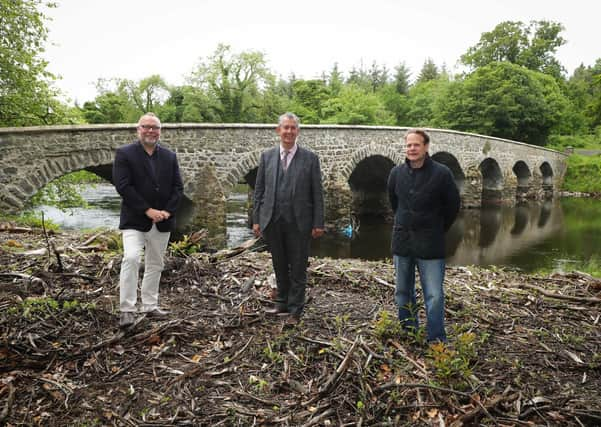Poots meets farming team helping to protect Lough Neagh


The Environment Minister Edwin Poots met with the Lough Neagh Partnership (LNP) which supports the Group Project, to hear how they’ve made use of his Department’s Environmental Farming Scheme (EFS), which has paid out more than £15million to Northern Ireland farmers so far, for the 2020 claim year.
The aim of EFS Group Level is to promote co-ordinated activity among farmers participating in the Environmental Farming Scheme to enhance environmental outcomes in certain areas, such as environmentally designated sites, priority habitats or river catchments.
Advertisement
Advertisement
Minister Poots said: “Lough Neagh is of major environmental importance in terms of biodiversity and water quality. Around 140 farmers in the area have teamed up to help to protect and enhance it having received funding through the EFS.
“To date, the funding has enabled the group to manage more than 600 hectares of wet grassland for breeding waders, including curlew, and around 190km of watercourses have been fenced off to protect and enhance water quality.
“The success of the Lough Neagh Partnership EFS Group project in supporting farmers to deliver positive management on land and waterways around the Lough, is a prime example of cooperation between Government, the voluntary environmental sector and farmers to deliver real environmental benefit.
“My Department will continue to work closely with farmers and the Lough Neagh Partnership to protect and enhance the environment around the Lough.”
Advertisement
Advertisement
The Minister continued: “Given these achievements, I’m very pleased that additional funding has been secured to enable further applications to be made to the EFS, both in this current year and in 2022.
“I’m also delighted to announce that EFS payments, worth more than £15million, have been paid over the past few months to support environmental work carried out by farmers in Northern Ireland, such as those in the Lough Neagh EFS Group. This means that over 96% of claims made to the scheme last year have been paid and my officials are working to ensure the majority of the remaining claimants are paid by the end of June 2021.”
Speaking about the remarkable success of the Schemes, Gerry Darby, Manager of the Lough Neagh Partnership, said: “Lough Neagh is one of our most important environmental sites in the whole of Northern Ireland. However a lot of its wetland nature has become degraded and we have witnessed a huge decline in the amount of wetland birds such as curlew, snipe, and lapwings. Indeed, the curlew, which was once a quite common bird around the Lough, is now fighting for survival.
“The Lough Neagh Environmental Farm Scheme delivered by Lough Neagh Partnership with DAERA funding has proven invaluable in assisting local farmers to manage this very important landscape more sensitively, protecting important habitats and species for the future. The Group delivery of these innovative DAERA schemes is particularly important, as farmers can share their own experiences with their farming friends and neighbours, sharing the benefits of the schemes and encouraging others to participate to leave a lasting impact on the shores of Lough Neagh.”